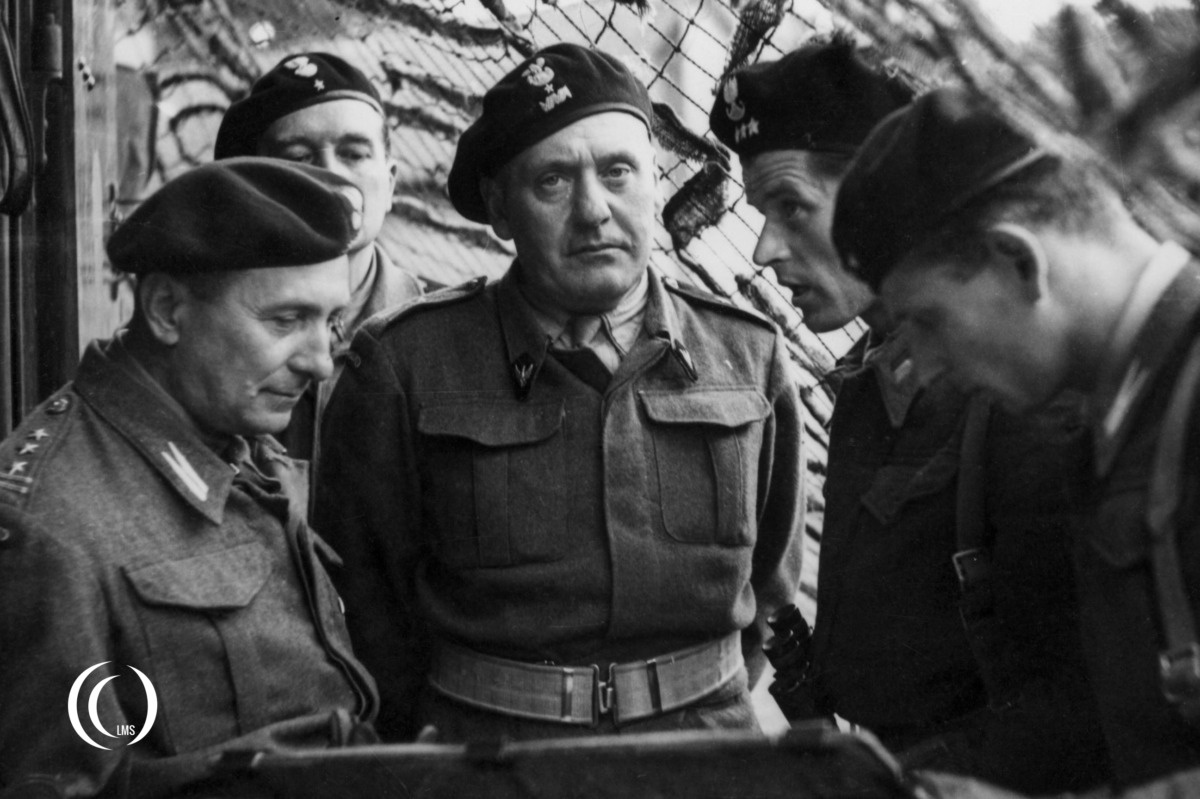
General Stanisław Wladysław Maczek (1892–1994) was a renowned Polish military commander and leader of the 1st Polish Armored Division during World War II. After fighting in Poland and France, he re-formed his division in Britain and joined the Allied advance in 1944. His troops liberated large parts of France, Belgium, and the Netherlands, including the city of Breda on the 29th of October 1944 — a feat achieved with minimal civilian casualties, which earned him deep gratitude from the Dutch population.
WWI
After the outbreak of World War One, Maczek was drafted into the Austro-Hungarian Army. He was swiftly trained as an NCO and briefly sent to the Russian front and then the Italian Front, where he was incorporated into the Austria-Hungary’s Alpine regiments. Here Maczek quickly rose to the rank of lieutenant and gained valuable experience in mountain warfare.
Interbellum
After the end of World War One Maczek joined the Polish Army and took part in the Polish–Ukrainian War, where he rose to the rank of Major, and after that the Polish–Bolshevik War against the Soviet Republic.
At the end of the hostilities with the Soviets in 1921, Maczek decided to stay in the army where he continued to make a career, eventually being promoted to Colonel. In 1938 he was given the command of the Polish 10th Motorized Cavalry Brigade.
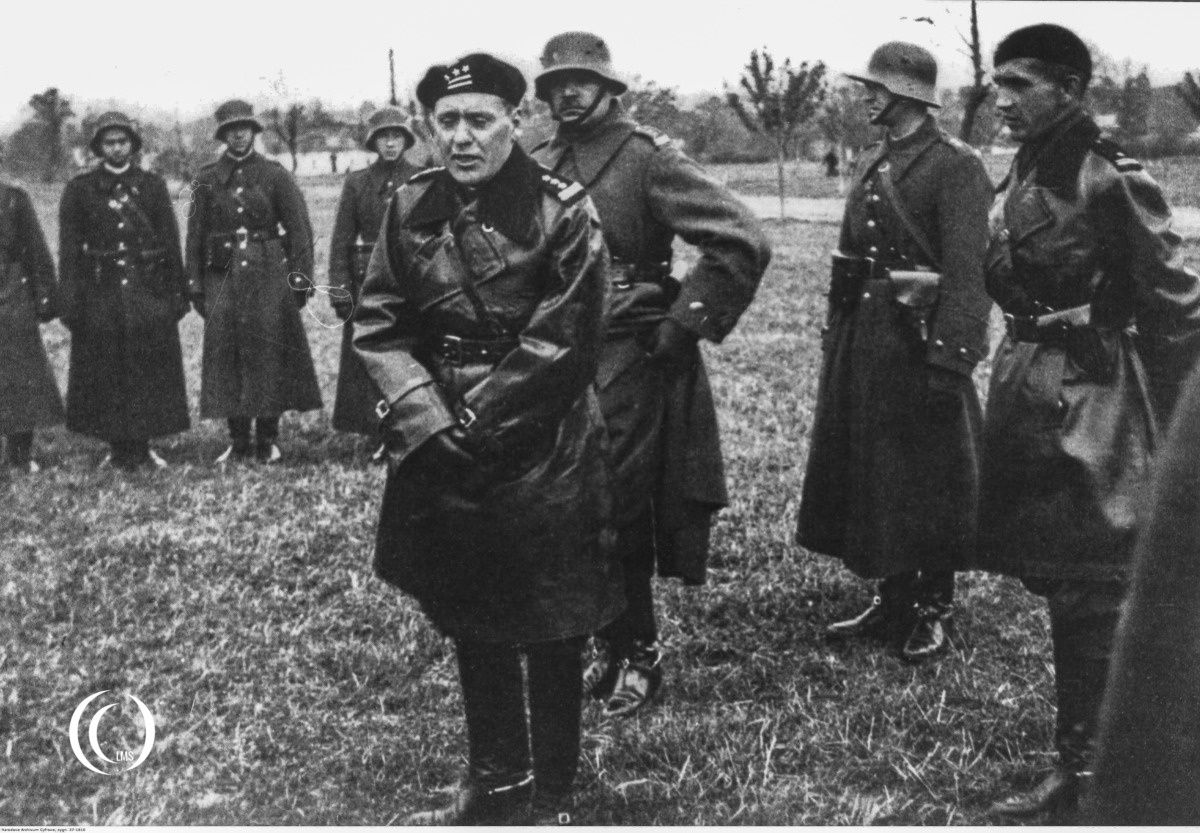
WWII
At the outbreak of World War Two with the Invasion of Poland on September 1st 1939, Maczek’s brigade was thrown into battle against the invading Germany Army in the Beskid Mountain region. Despite being heavily outnumbered and outgunned, his mountain warfare experience helped to get the maximum from his brigade and successfully slow down the pace of the Germans.
Later the brigade takes part in defending the city of Lwów. But when the Soviets also invade Poland from the East on September 17th, Maczek’s brigade is pulled out and ordered to cross the Hungarian border.
Invasion of France
After the surrender of Poland, Maczek goes to France and joins the re-created Polish Army under General Sikorski. He is promoted to brigadier-general and forms the 10th Armoured Cavalry Brigade incorporating former 10th Brigade veterans. Unfortunately the brigade is poorly equipped by the French Army with a dozen obsolete Renault FT-17 tanks and unable to stand up to the German Panzers during the Invasion of France. When the French surrender, Maczek is forced to disband the brigade and manages to escape to England.
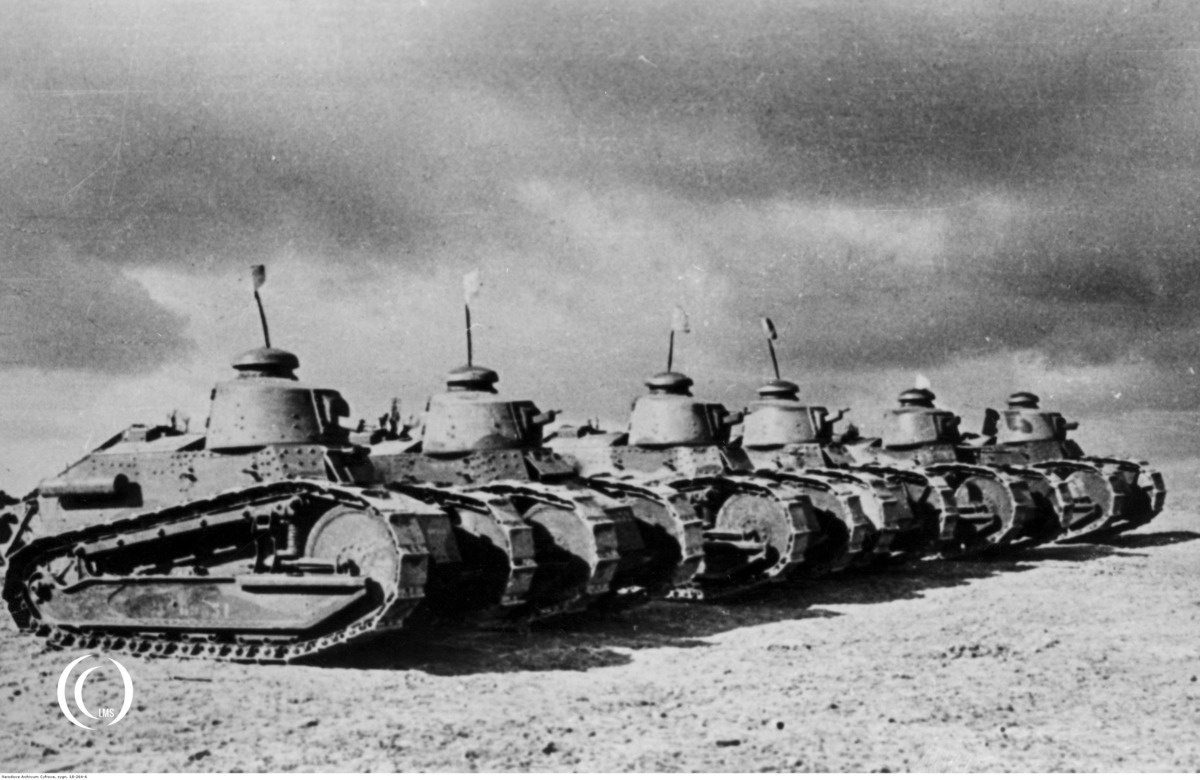
1st Polish Armoured Division
Maczek is stationed in Scotland, where he trains Polish troops that have also made it to England. In February 1942 he forms the 1st Polish Armoured Division and is equipped by the British with Cromwell Cruiser and M4 Sherman tanks.
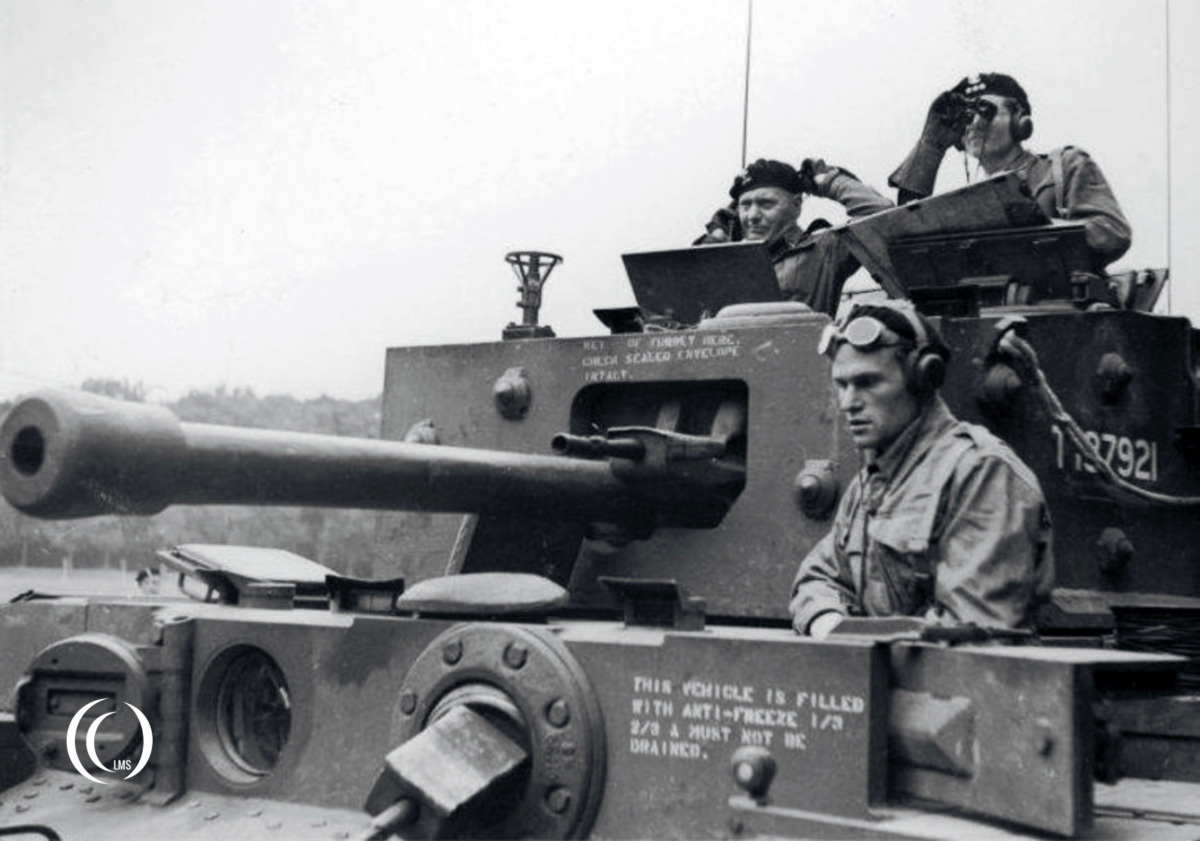
During the Invasion of Normandy, his division entered combat attached to the First Canadian Army on the 8th of August. As part of Operation Totalize, they successfully perform various operations in the Battle of Falaise, in which 14 German divisions are trapped and destroyed.
Following this success, the division advanced through France, Belgium, and the Netherlands, liberating key towns including Ypres, Ghent, and Breda. The liberation of Breda is achieved almost without civilian casualties thanks to an outflanking manoeuvre, which earned General Maczek honorary Dutch citizenship after the war. The highlight of the division’s campaign was the surrender of the German naval base at Wilhelmshaven, along with its entire garrison and approximately 200 vessels of the Kriegsmarine.
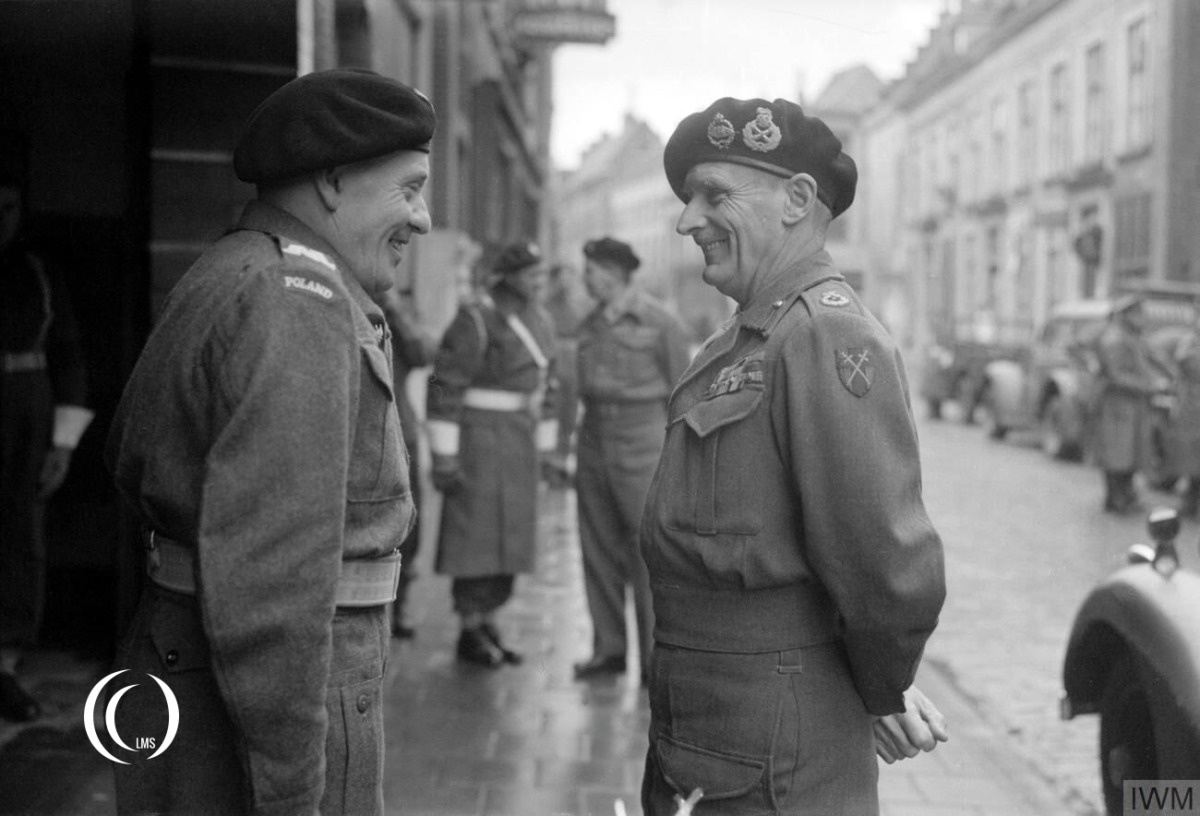
Maczek remained in command until the war’s end and after Germany’s surrender took command of the Polish I Corps. He later became the head of all Polish forces in the UK until their demobilization in 1947.
In Excile
After the war, Maczek was stripped of Polish citizenship by the Communist government of the Polish People’s Republic. When he left the army on 9 September 1948, he was denied a general’s pension by the British government as he had not been a member of the British armed forces. He settled in Scotland, where he lived modestly, working as a barman at an Edinburgh hotel until the 1960s.
When the Mayor of Breda heard of Maczek’s situation, he made an appeal to the Dutch Government to help him. As a result, Maczek was secretly awarded an indexed general’s pension.
Recognition
Despite his sacrifices, Maczek received little official recognition during his lifetime. Only much later was his contribution more widely honored. In 1989, the last Polish Communist Government issued a public apology to the General, and in 1994 he was presented with Poland’s highest state decoration, the Order of the White Eagle. On 11 December of the same year, he died at the age of 102. In accordance with his wishes, he was buried among his soldiers at the Polish Military Cemetery in Breda.
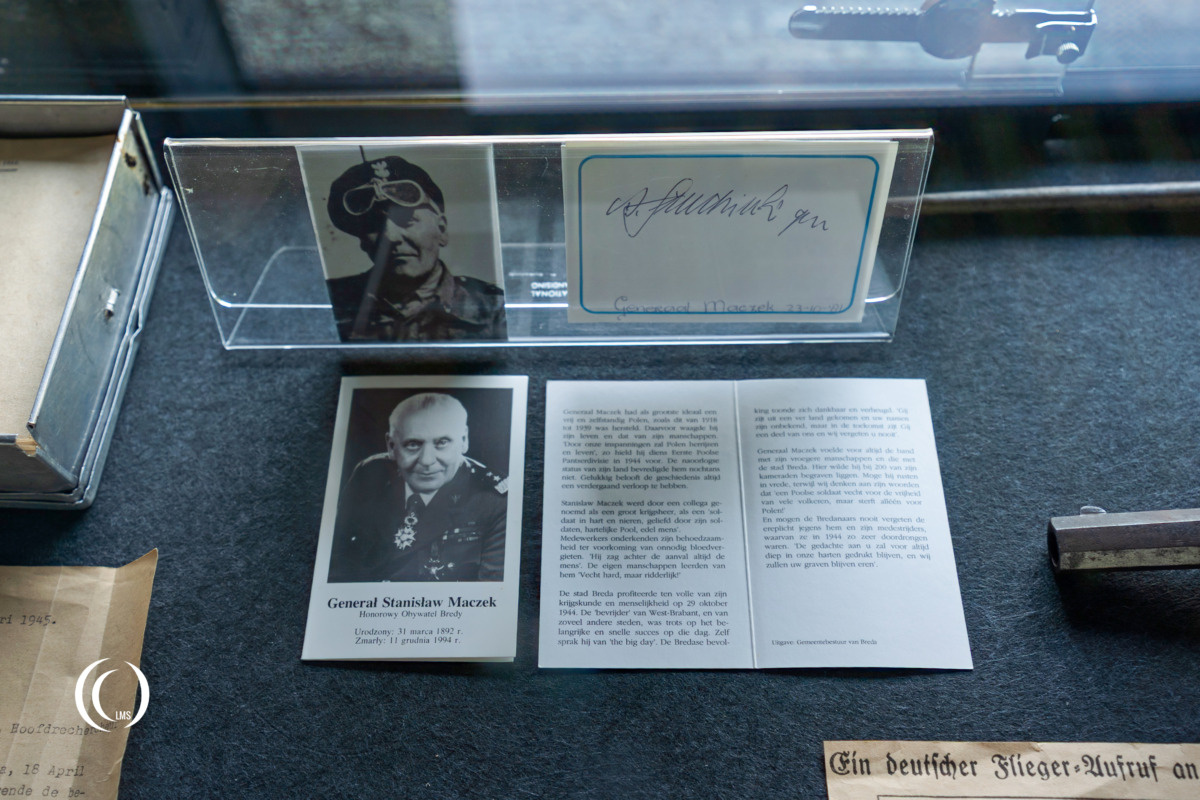
In 2020, the Maczek Memorial Breda, was opened thanks to the efforts of many volunteers and the support of a large number of sponsors, both from Poland and The Netherlands. The memorial honours the Polish contribution to the liberation of the Netherlands.
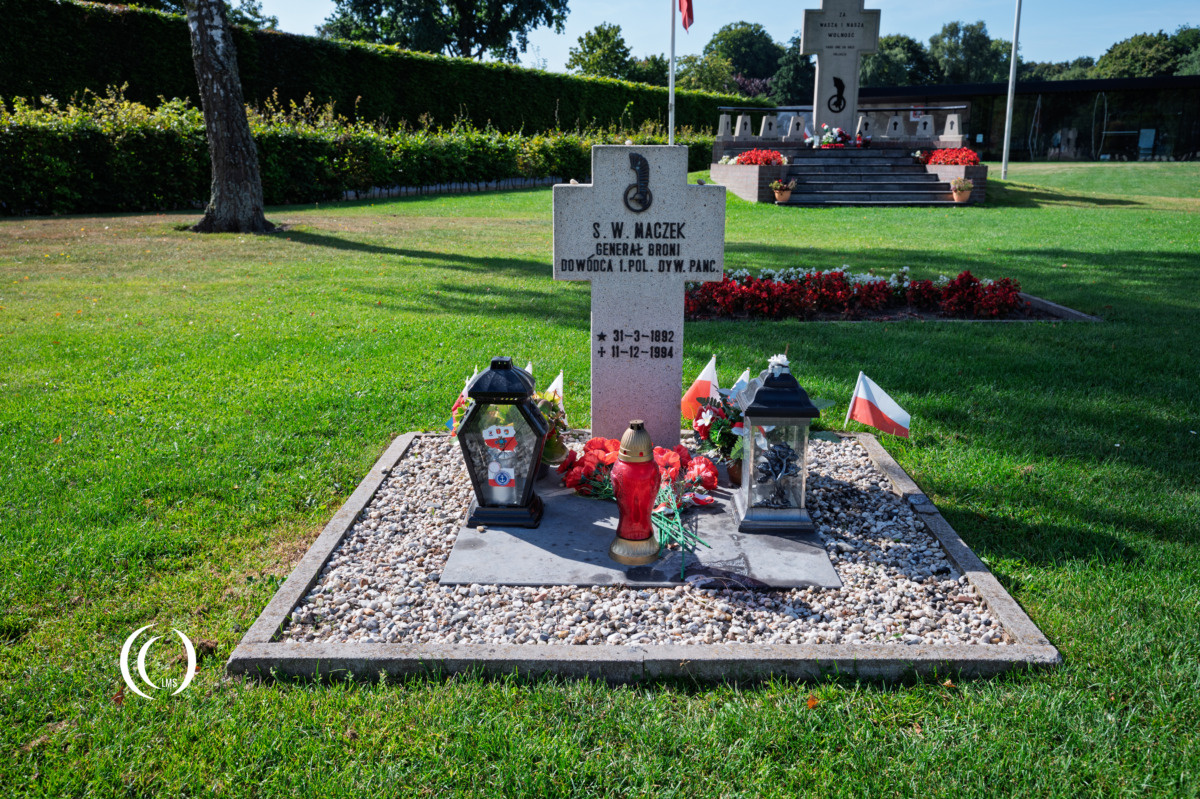
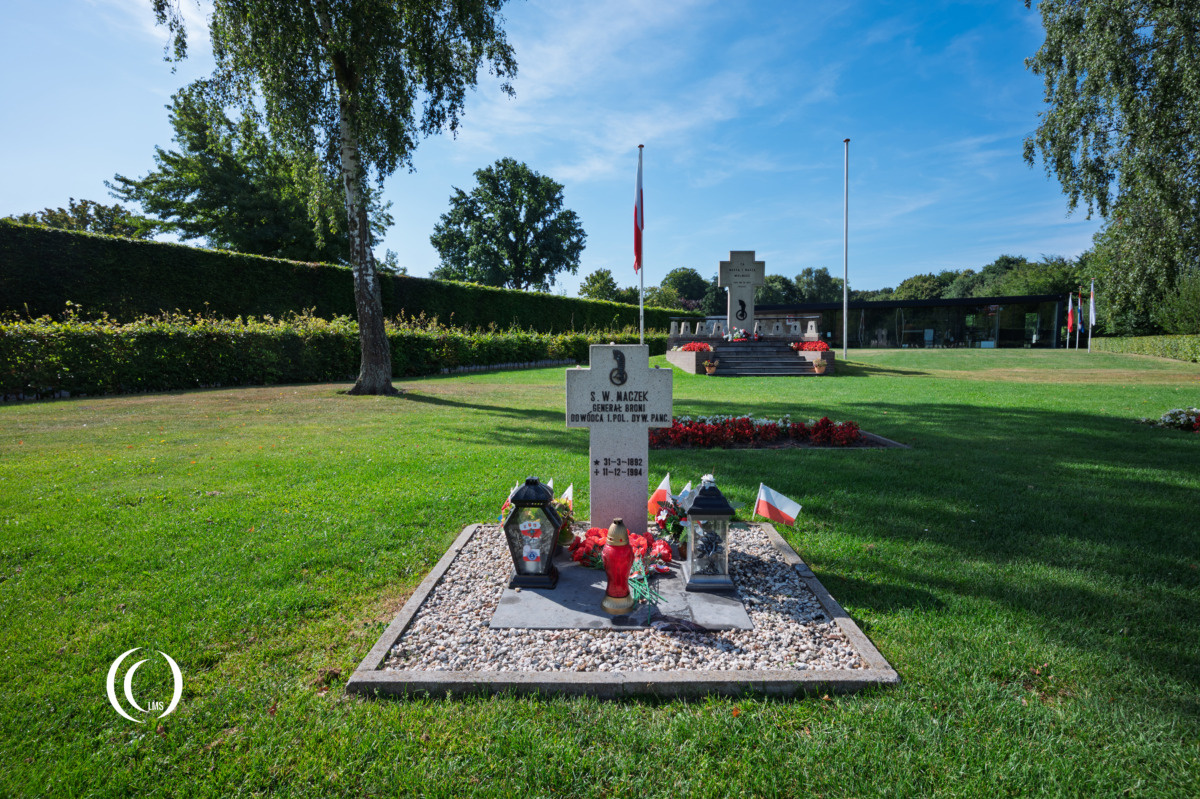
Visit
You can visit General Stanisław Maczek’s grave at the Polish War Cemetery and Military Honorary Field in Breda, the Netherlands. Each year during the Dutch Liberation Day festivities, a commemoration service is held here for the fallen Polish soldiers.